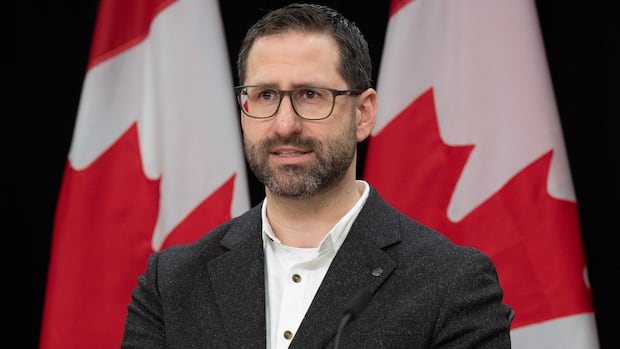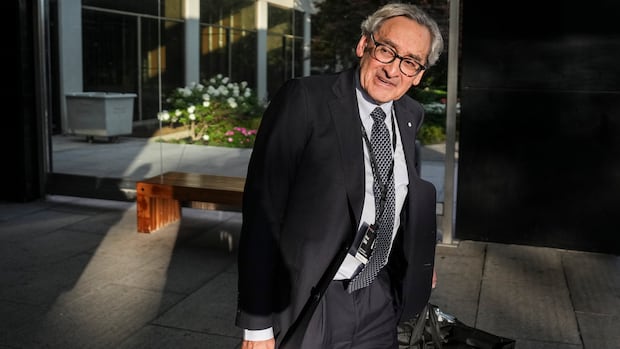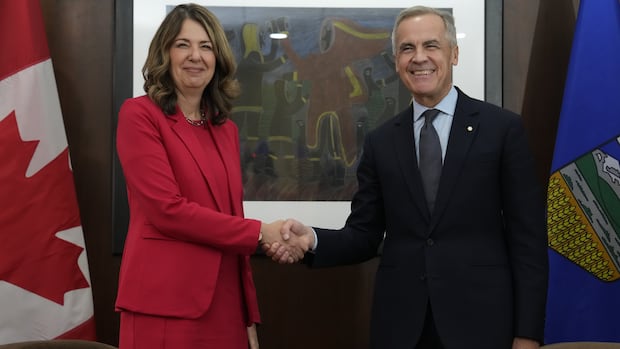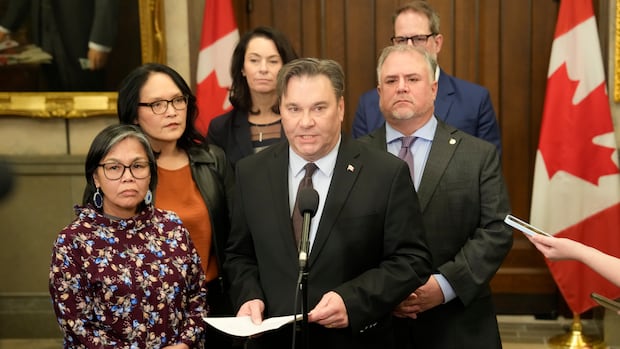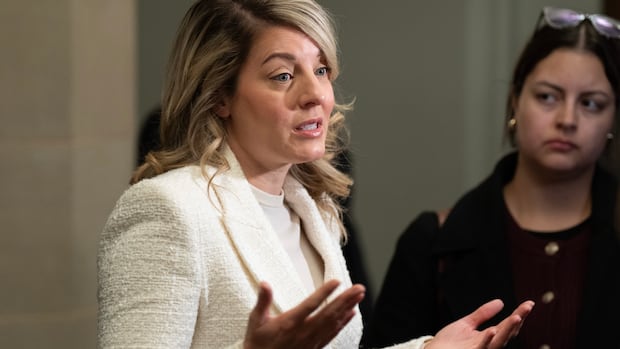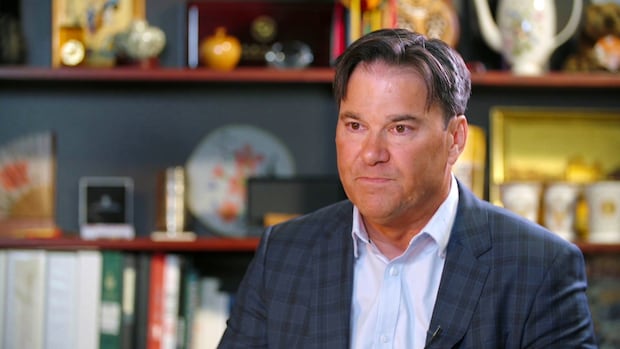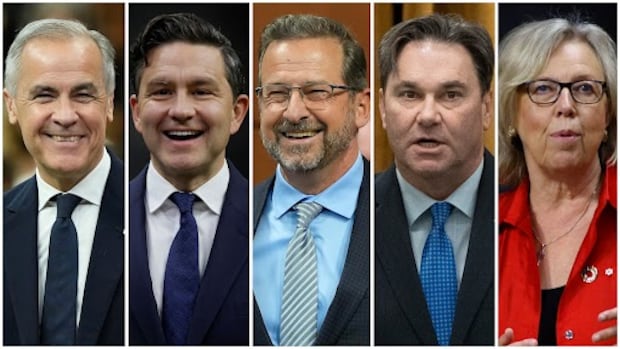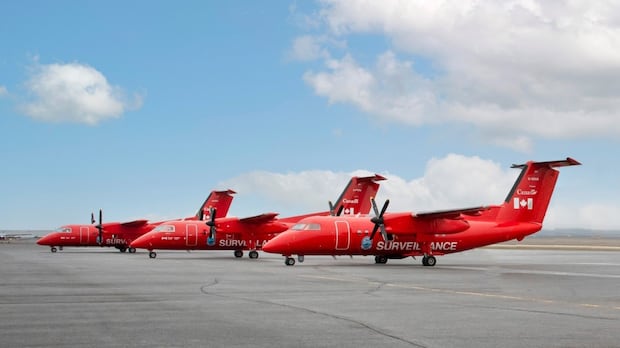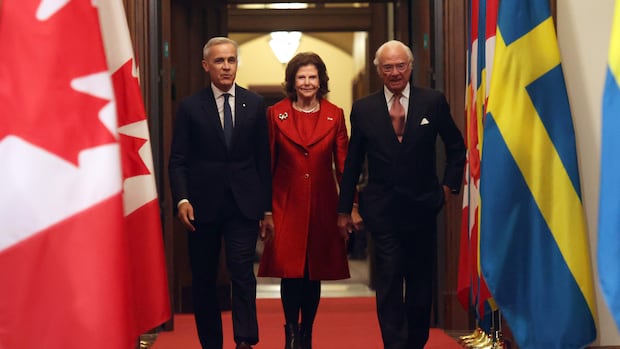Prime Minister Mark Carney and Alberta Premier Danielle Smith are moving closer to reaching a deal on the future of Alberta's energy sector, according to a senior government official, and it's likely to include some language about a path forward for the northwest B.C. oil pipeline that Smith has long demanded.
While the last Liberal government essentially slammed the door shut on an oil pipeline to the region, Carney is open to considering such a project if Alberta, as the proponent, conducts the necessary Indigenous consultation and negotiates with the B.C. government, among other conditions, the official said.
B.C. Premier David Eby has strenuously opposed such a pipeline. Another potential roadblock is the Trudeau-era B.C. tanker ban bill, which prohibits ships laden with oil from docking at ports along the province's northern coast.
The federal government is considering granting limited exemptions, and there's a possibility it could use its power under C-5, the One Canadian Economy Act, to allow tankers associated with this proposed pipeline to bypass that moratorium.
The government isn't open to doing away with the tanker ban entirely, said the official, who spoke to CBC News on the condition they not be named due to the sensitive nature of the ongoing bilateral discussions. The Globe and Mail first reported on the progress around a possible new B.C. pipeline and potential exemptions to the tanker ban.
Whatever Ottawa's decision on the pipeline, a construction start date is not imminent.
Alberta will have to do the regulatory and constitutional work required and only then would Ottawa consider referring the project to the Major Projects Office to get it on the road to potential completion, the source said.
Pipeline construction has been notoriously slow in recent years. The federal government purchased the languishing Trans Mountain expansion project in 2018 and it didn't open to shippers until 2024.
WATCH | Why the Western pipeline fight is different this time:While Western premiers fighting over building pipelines is not new, there appears to be a shift in Alberta’s game plan. For The National, CBC’s Lyndsay Duncombe breaks down why it’s different — and some say more dangerous — this time around.That project, which was built at huge expense using taxpayer dollars, is profitable. According to company's filings, in the first three months of 2025 alone, Trans Mountain generated some $568 million in earnings.
The pipeline has opened up new markets for Canadian oil in Asia and the U.S. West Coast, helping to close the longstanding differential with global oil prices while also delivering more tax and royalty revenue for the provincial and federal governments.
Smith hopes another pipeline, this time to the northwest, will deliver more of the same.
Part of this proposed grand bargain between Ottawa and Alberta is a commitment to reduce the oil sector's emissions.
Carney is intent on getting the Pathways Plus project built, and has already tasked the Major Projects Office with seeing it through. It's an Alberta-based carbon capture, utilization and storage project, which could reduce the emissions intensity of exports from the province's oilsands.
Carney is also committed to the industrial carbon tax, which, after the consumer levy was scrapped, has emerged as the centrepiece of the Liberal government's climate action plan. The most recent federal budget calls for that tax to be "strengthened."
After years of tension and outright hostility, the relationship between Canada and Alberta has markedly improved since Carney's election, officials from both sides said.
An Alberta government source described the ongoing talks with Carney and his team as positive and headed in the right direction.
Carney and Smith are personally brokering this deal, the federal official said, and there will be no deal until there's one that both are comfortable with enacting.
Smith said at a news conference on Monday that she and Carney have settled on what she calls a "new vision" for Alberta's energy sector and it could be revealed in a matter of days — but there's still a chance it could be derailed by naysayers in the federal Liberal caucus.
Smith said Carney understands well that tying up the province's oil exports has fuelled the Alberta separatist movement and the two governments need to move with some "urgency" to allow energy development to go ahead to show people there "the country works again."
"We are both very keen to get a memorandum of understanding but we'll know in a few more days," Smith said.
She said it might be a tough sell for Carney given some members of his caucus will have to accept "doing a 180 on some of the bad laws they supported" during the Trudeau era.
WATCH | B.C. premier, Indigenous leaders sign declaration to uphold tanker ban:Premier David Eby and Coastal First Nations are doubling down on their support for the oil tanker ban off B.C.’s north coast and are calling on Ottawa to do the same. But as CBC’s Katie DeRosa reports, some Indigenous communities are open to another pipeline.Jonathan Wilkinson, a B.C. Liberal MP and former federal environment minister, said that "a number of things" would need to happen before the tanker ban could change, including discussions with the B.C. government and coastal First Nations.
"The prime minister was pretty clear that the projects would need the support of the jurisdictions in which they're being built. So I think there's got to be some conversations with the premier," Wilkinson said.
"In terms of First Nations, I mean, there needs to be significant support. It doesn't necessarily have to be unanimous. It wasn't in the case of Trans Mountain. But there needs to be significant support and at present I don't think there is."
Gurbux Saini, another B.C. Liberal MP, said before Wednesday's weekly caucus meeting that "there will be no pipeline" unless First Nations and the B.C. government give their consent.
On his way into the caucus meeting, Finance Minister François-Philippe Champagne said he does not want to prejudge the outcome of the talks with Alberta.
Champagne's response did not rule out the possibility of allowing tanker traffic on the northern B.C. coast.
"Canadians now understand the nexus between energy security, economic security and national security. I think people understand we live in a different world and I'm sure that with technology you can do that in a very responsible way," Champagne said.
WATCH | May says 'no chance' of oil tanker on B.C. coast:Since the government introduced the Building Canada Act in June, Alberta Premier Danielle Smith has called for the repeal of the West Coast tanker ban in order to build a pipeline to the northern B.C. coast. In Ottawa on Wednesday, Green Party Leader Elizabeth May said ‘they’re barking up the wrong forest.’Green Party Leader Elizabeth May, who just voted for Carney's first budget, said she is diametrically opposed to lifting the tanker ban.
"There is no chance on God's green earth there will be an oil tanker on B.C.'s West Coast," she told reporters.
"Haida nation will never stand for it," she said referring to coastal Indigenous people in the region. "British Columbians won't stand for it. They're not just barking up the wrong tree, they're barking up the wrong forest."


